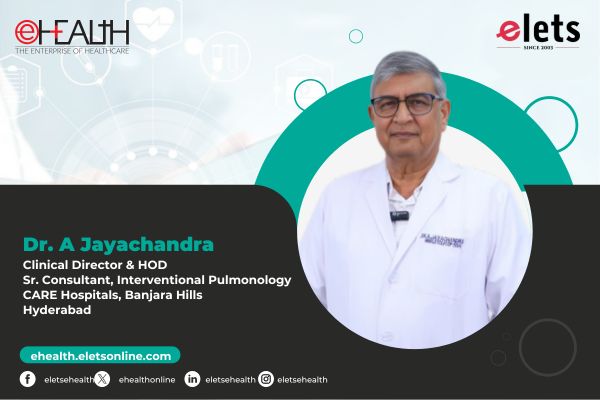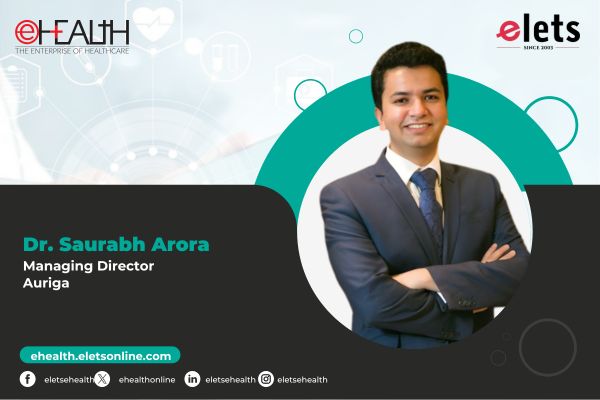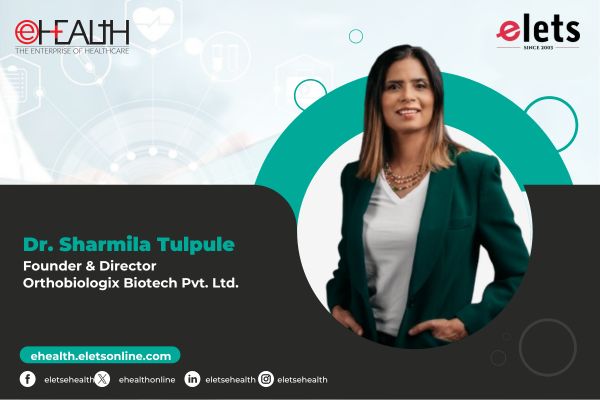
(Honorary) Brig Dr. Arvind Lal, Executive Chairman, Dr. Lal PathLabs Ltd in his keynote address at the second edition of Elets Diagnostics Leadership Summit highlighted the importance of the diagnostic sector in the covid-19 pandemic.
I n the last two years Covid-19 pandemic has infected 22 crore people across 220 countries and killed about 45 lakh people. India has witnessed over 3.3 crore cases, almost 15% percent of global cases and 4.4 lakh deaths that are about 10% of the global deaths due to the Covid. No country has been able to eliminate Covid-19 and many international public health experts and countries like Singapore have already accepted that Covid-19 may never disappear completely and shall reach a state of coexistence known as an endemic like the HIV, Hepatitis B and Hepatitis C virus.

As we learn to live with Covid-19, we should leverage it as a transformational inflection point for Indian healthcare. Within healthcare the diagnostic sector has played a very important role in the global response to the pandemic and the Indian in vitro diagnostics (IVD) industry has truly been a trailblazer for all other industries to become self-reliant in this pandemic. Indian Council for Medical Research (ICMR) was instrumental in validating 374 RT PCR kits of which 168 were approved and validated, another 127 Rapid Antigen Test kits of which 48 were approved. The good news is the majority of these kits are indigenously developed and manufactured. The country has done more than 55.5 crore tests for Covid 19 so far with the help of 3,000 labs approved by ICMR for Covid- 19 testing.

Private diagnostic labs have been instrumental in achieving these huge figures. Today, out of 1,850 odd labs carrying out RT-PCR testing for covid-19, more than 64%or app 1,200 are private labs. Dr. Lal Path lab alone has done more than 25 lakh Covid RT-PCR tests and we were the first private lab in India to be approached by ICMR and the Union Government to supplement the government’s efforts in Covid-19 testing.

Covid has given a new growth & development to health care as a whole and diagnostics in particular. In the last one and a half years India has registered a 400 percent growth in the number of labs that started molecular testing. Beginning with one molecular lab for Covid testing, today we at Dr Lal Path Labs have set up 20 more molecular labs equipped for the same, activating a new molecular lab every month since the start of the pandemic.

By adopting the formula T3V that is testing, tracking, treatment and vaccination, we shall win the battle of covid-19.
But beyond pandemic India still has an unfinished agenda of managing a dual burden of diseases. On the one hand we have not yet been able to eliminate the age old infections while the burden of non-communicable diseases (NCD) has risen. As NCDs are responsible for 65% of deaths in India, early diagnosis of both infectious and non-infectious or non-communicable diseases can considerably reduce mortality and morbidity. We know that in modern evidence based medicine 70 percent of all clinical decisions are made on the basis of a pathology diagnostic report therefore one cannot overemphasize the importance of diagnostics.
Government has also recognized the importance of ensuring diagnostic services at all levels of healthcare and three notable developments in this context are Ayushman Bharat – Health and Wellness Centres (HWCs) that target to create 1.5 HWCs across the country with essential diagnostic listed as one of the key components of operationalization of these HWCs. Secondly, in 2019 India became the first country in the world to compile a National Essential Diagnostics List (NEDL), which was an adaptation of WHOs essential diagnostic list known as EDL. Led by ICMR, this effort specifies diagnostics tests to be made available at all levels of care whether it is village level, primary healthcare level or secondary or tertiary level. Lastly, announcement of creation of public health labs in Union Budget 2021 and 2022 and public health labs which expanded the range of diagnostic services in 3,382 blocks across 11 high focus states and integrated public health labs to enhance diagnostic capacities in all the 730 districts in India.
A need to reign in labs in the unorganized sector is also necessary and can be done by government regulations in the form of adoption of Clinical Establishment Bill and then getting them accredited by NABL. Further, government spending on health care in India has been absolutely low at less than 1.5 percent of the GDP. Therefore, we have to pool funds and resources from all possible sources to make essential diagnostics available at all levels of care. One such additional source of funding can be unlocked if diagnostic companies are allowed to spend their CSR funds in the enabling essential diagnostics of these 1.5 lakh HWCs or the public health labs to be created in the future this can be made possible by providing an exemption or a clarification in the CSR rules for the health sector as was done in the case of Covid-19.
The three game changers that will vastly help to make the diagnostic sector future ready includes Point of Care (POC) testing and lab on –a – chip (LoC). LoC diagnostics for the masses will have to move from a centralized lab with complex analyzers trained personnel and long turn around time (TAT) to the point of care patients carried out by non-trained pathology personnel generating results in a very short time.
Artificial Intelligence (AI) based software can yield structured shareable actionable data and mark the next big leap in the evolution of laboratory software. AI automation and digital technologies also have the answer to acute shortage of pathologists. In India, there are only six thousand qualified pathologists looking after three lakh labs. Therefore, Telepathology holds the key to providing reliable accurate and efficient diagnostic services beyond tier one and tier two cities. However, lack of clear guidelines on Telepathology in India is hampering its growth potential.
Since the government released the telemedicine guidelines, teleconsultations in India have grown. Hence, we must advocate for Telepathology to be encouraged by the government. I would say that Covid-19 has accelerated the adoption of technology and innovations in healthcare at a pace never witnessed before. Therefore, there cannot be a more opportune time than this to bring in all the reforms we have been talking about in healthcare.
Be a part of Elets Collaborative Initiatives. Join Us for Upcoming Events and explore business opportunities. Like us on Facebook , connect with us on LinkedIn and follow us on Twitter , Instagram.
"Exciting news! Elets technomedia is now on WhatsApp Channels Subscribe today by clicking the link and stay updated with the latest insights!" Click here!
















